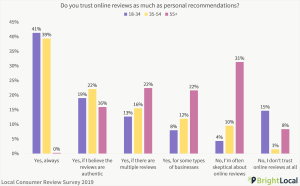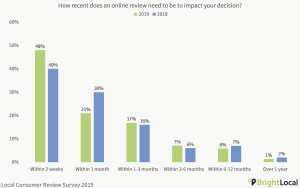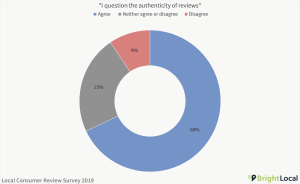Let’s clarify one thing right off the bat: Domain Authority is not the same as PageRank. Domain Authority (DA) is a tool created by Moz used to estimate your page ranking. It uses link flows and trust metrics to come to its conclusion, but DA has no effect on how well your site actually does from a technical standpoint.
This doesn’t mean that DA has no effect on your site whatsoever. It has more of a sociological impact in the way that owning a fancy suit doesn’t mean you’re rich, but it might help you get a higher paying job. Having a high DA will improve link-building opportunities, which will, in turn, improve your PageRank.
Your PageRank comes directly from Google and isn’t accessible. You can try to calculate it, but your DA is probably a better estimate than you’ll come up with. The main thing is that your PageRank actually does determine where your page sits in the search results. As you can probably assume, higher is better. You want your page to show up at the top of the organic search results. PageRank says whether or not it will.
Improving DA and PageRank
Google and Moz determine your metrics through a number of factors but largely focus on links and content. Lucky for you, you have some control over both of these.
Link building is your best method for improving authority. By having a more trusted site vouch for you by posting an article with a link to your site, they are improving your trustworthiness. You can build links through guest-writing articles, negotiating with authors of relevant pages, or adding links to directories in which your firm is listed.
On the content front, the main advice Google gives is to prioritize quality over quantity. Google determines quality through E.A.T.: expertise, authority, and trustworthiness. If you want your blog articles to be used as resources, they have to be relevant to your firm and what people want to know regarding your expertise. You need to prove that you are a trusted expert, and your website needs to prove that you aren’t trying to steal anything from your clients. This means that anyone who visits the site needs to be comforted by the layout, so content extends beyond writing and into the design.
What Comes with a Good DA
When you manage to improve your DA and your PageRank you will most likely see an increase in traffic relevant to your business, meaning an increase in leads and clients. You will have more opportunities for quality link building, the heavens will open up you will finally find inner peace.
It’s never that simple. Maintaining good DA means maintaining your website, keeping up with search engine updates, and consistently producing quality content. It’s work, and not always work you have time for if you’re also running a law firm.
Mockingbird is here to help. We work in improving your website, content, and link building connections. If you would like to get more clients, contact Mockingbird today.




